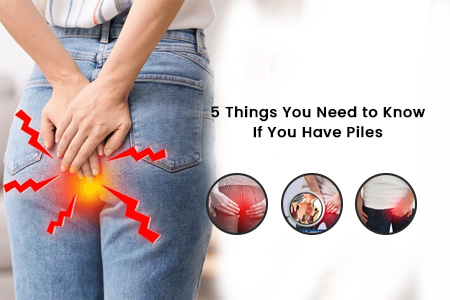Piles, also known as hemorrhoids, are swollen veins in the lower rectum or anus that can cause significant discomfort and pain. While this condition is common, many people avoid seeking treatment due to embarrassment or misunderstanding about the severity of piles. However, ignoring the symptoms can lead to further complications. This blog will help you understand the essential things to know if you have piles and the treatment options available at the best ayurvedic hospital for piles and fistula in Hyderabad, Dr. Saraja’s Ayurveda Anorectal Hospital.
1. What Exactly Are Piles?
Before delving into how to manage piles, it’s crucial to understand what they are. Piles develop when the veins in your lower rectum or anus become inflamed and swollen, often due to excessive straining during bowel movements, chronic constipation, or sitting for long periods on the toilet. There are two types of piles:
Internal Piles: These are located inside the rectum and are usually painless but may cause bleeding.
External Piles: These form under the skin around the anus and can be painful, itchy, and cause swelling.
Internal piles often go unnoticed until they bleed, while external piles are more likely to cause discomfort.
2. Piles Can Be Prevented
Although piles can be painful and uncomfortable, they can often be prevented through lifestyle changes. Some key prevention tips include:
Increasing Fiber Intake: A high-fiber diet softens your stool, reducing the need for straining during bowel movements. Foods like fruits, vegetables, whole grains, and legumes can help.
Staying Hydrated: Drinking plenty of water throughout the day keeps your digestive system functioning well and prevents constipation.
Avoiding Long Periods of Sitting: Sitting for extended periods, particularly on the toilet, puts extra pressure on the veins in your rectum. Taking breaks and engaging in light physical activity can alleviate this.
Practicing Good Toilet Habits: Avoid straining or holding your breath while passing stools, as this can aggravate piles.
These steps can significantly lower your chances of developing piles, or help manage mild cases.
3. Piles Are Common—You’re Not Alone
Many people suffer from piles at some point in their lives, especially as they age. They are incredibly common among individuals over the age of 45 and are also prevalent in pregnant women due to increased pressure on the pelvic veins. Though piles can cause discomfort, knowing you’re not alone and that the condition is highly treatable can provide some relief.
If you’re dealing with piles, you may experience symptoms such as:
Pain or discomfort around the anus
Itching or irritation in the anal region
Swelling or a lump around the anus
Bleeding during bowel movements
If you notice these symptoms, it’s crucial to seek treatment early at the best hospital in Kukatpally to prevent complications.
4. Effective Treatment Options Are Available
While piles can be distressing, numerous effective treatment options are available to alleviate the symptoms and address the root causes. Treatment depends on the severity of the condition, but common approaches include:
Home Remedies: Mild cases of piles can be managed at home with over-the-counter ointments, sitz baths (soaking the anal area in warm water), and lifestyle changes like increasing fiber intake and drinking plenty of fluids.
Ayurvedic Treatments: At Dr. Saraja’s Ayurveda Anorectal Hospital, we provide specialized ayurvedic treatments that focus on natural remedies and holistic care. Herbal ointments, dietary changes, and ayurvedic medicines can help reduce the swelling and discomfort caused by piles. Ayurvedic treatments also aim to improve digestion and strengthen the anal muscles, which can prevent recurrence.
Minimally Invasive Procedures: For more severe cases, procedures like rubber band ligation, sclerotherapy, and laser treatment may be recommended. These procedures are designed to shrink or remove the piles with minimal discomfort and downtime.
Ayurvedic treatment methods, which are available at the best ayurvedic hospital for piles and fistula in Hyderabad, offer effective and natural ways to treat piles without the need for surgery.
5. Ignoring Piles Can Lead to Complications
If left untreated, piles can lead to more severe health complications, including:
Thrombosed Piles: When blood pools in an external hemorrhoid, it can form a clot (thrombus), causing severe pain, swelling, and inflammation.
Prolapsed Piles: Internal piles may protrude outside the anus, leading to pain and discomfort. In some cases, these prolapsed piles may need to be manually pushed back inside, or they may require surgical intervention.
Chronic Bleeding: Frequent bleeding from internal piles can lead to anemia (a deficiency of red blood cells), causing fatigue and weakness.
To avoid these complications, it’s important to consult a specialist for early diagnosis and treatment. At Dr. Saraja’s Ayurveda Anorectal Centre, recognized as the best ayurvedic hospital for piles and fistula in Kukatpally, patients receive a personalized treatment plan based on the severity of their condition, focusing on both immediate relief and long-term prevention.
Conclusion
Piles can be painful and disruptive, but with the right knowledge and treatment, they are manageable. By adopting healthy lifestyle habits, seeking early treatment, and exploring ayurvedic therapies, you can significantly reduce the discomfort caused by piles.
For those in search of effective, non-surgical treatment for piles, Dr. Saraja’s Ayurveda Anorectal Centre stands out as the best hospital in Kukatpally and the best ayurvedic hospital for piles and fistula in Hyderabad. Don’t let piles impact your quality of life—consult with experts who understand the value of holistic, natural healing.

